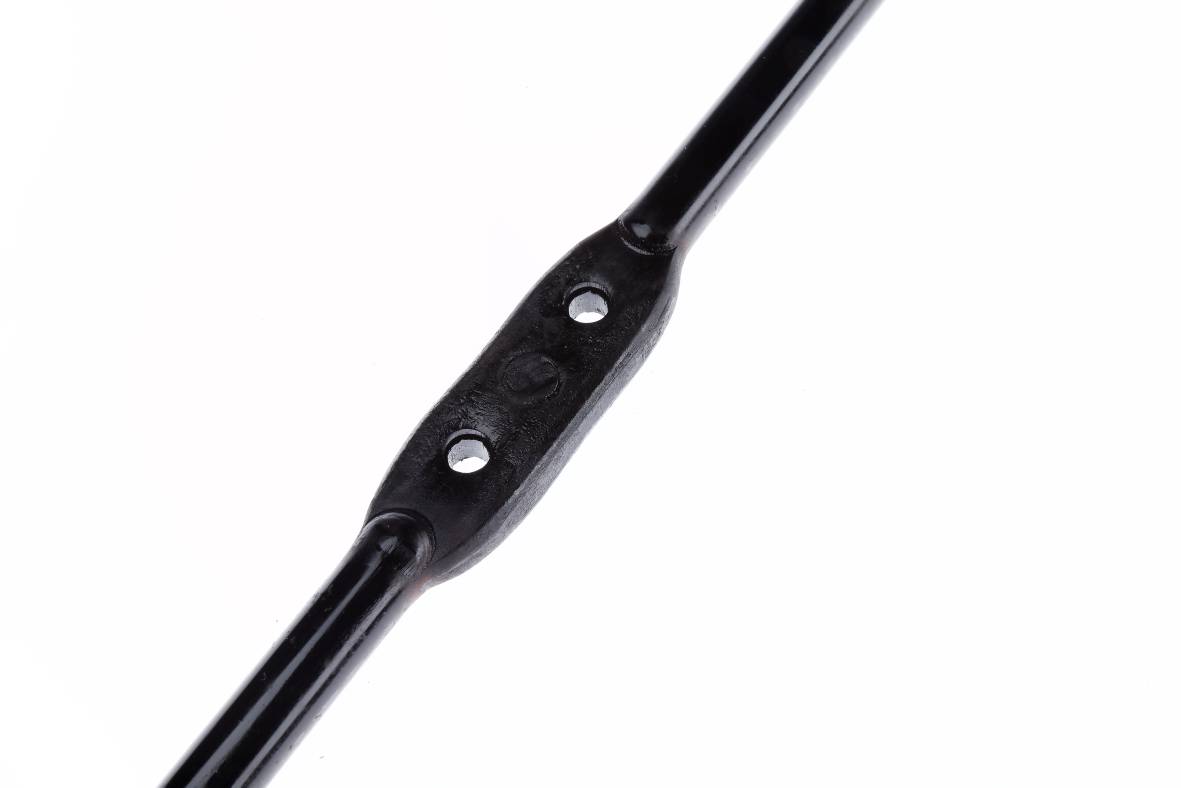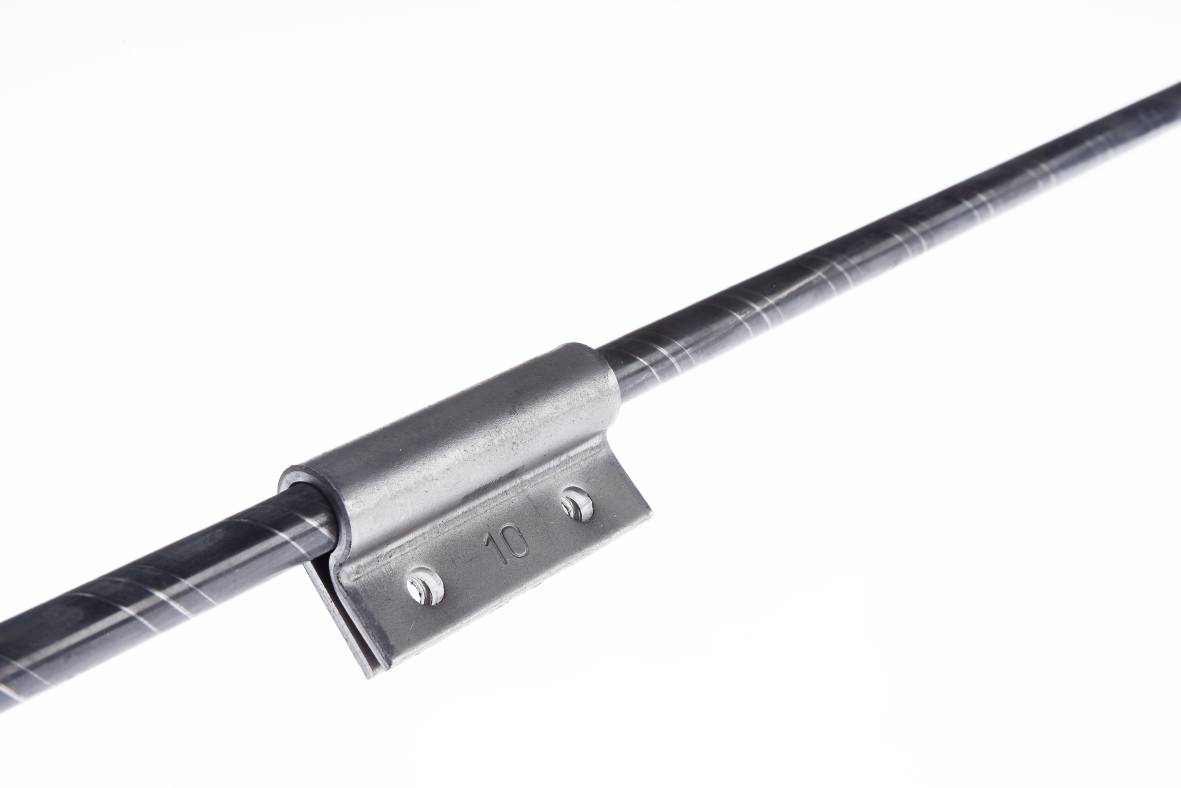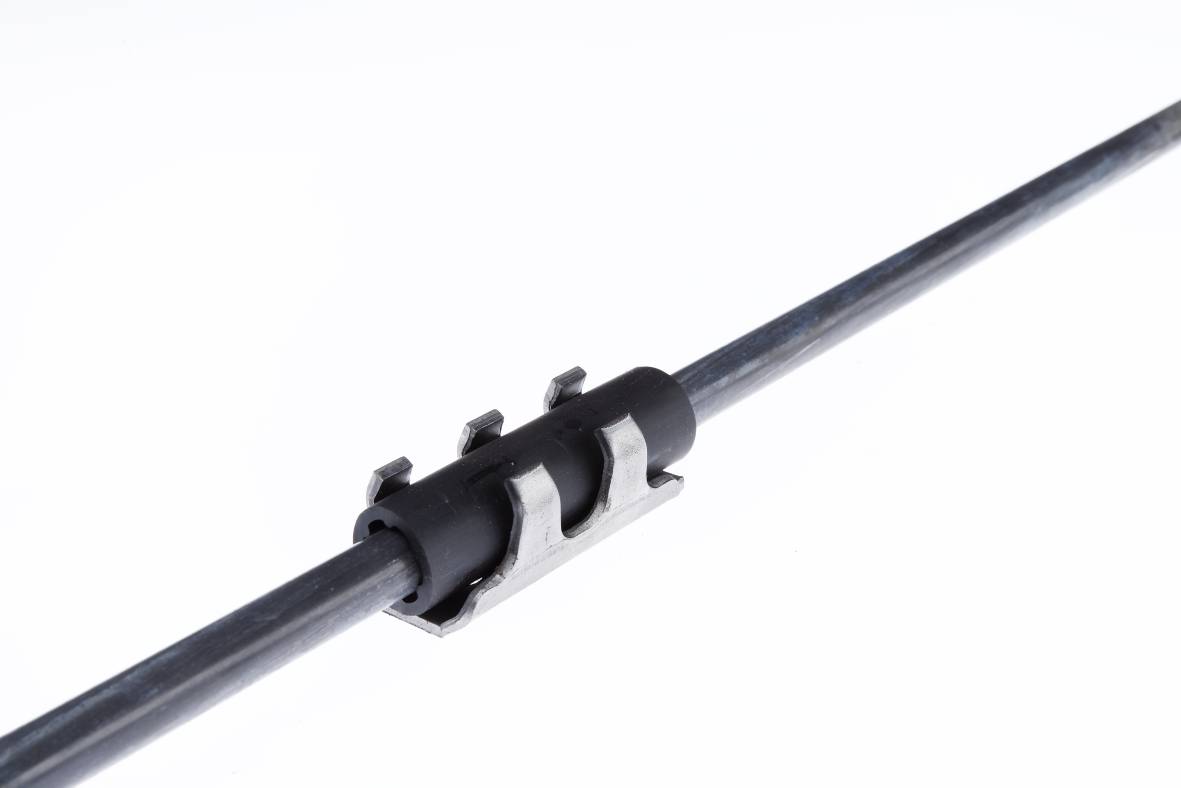Rivet rods
Our webs are standard equipped with rods of spring steel class C (DIN 17228). However we can also mount rods of CrSi-steel, stainless steel or glass fibre. After consultation with you, we can also use other materials so that the produced web will meet your expectations as good as possible.
Stokmaat

In determining the correct width of the sieve web, it is important that the rods have the correct “stokmaat”. This is the distance between the two outside rivet holes, C.T.C. When ordering loose rivet rods it is important that you mention the stokmaat as well as the distance between the holes in one end. Without further notice, we assume this distance to be 20mm in 50mm wide traction belts and 32mm in 60 or 75mm wide traction belts. On request we can also make these distances 24 or 30mm
Center belt attachement
OGP

OGP (rods ∅ 8, 9, 10, 11, 12, 13 and 15). The rod will be upset before flattening. This thickens the material so the flattening does not become a weak spot.
BMMB

Center clips (rods ø 9, 10, 11, 12 and 13mm) A centre clip will be slid over the rod. The centre clip will then be riveted to the belt so it is held tightly around the rod. To prevent the centre belt from moving sideways some rods will be flattened on either side of the clip at intervals of approximately 30cm.
BMMK

Clamp clips (rods from ø 8mm with Star-PVC) A clamp clip will be riveted to the centre belt first. a covered rod will then be placed inside the clip, after which the clip will be squeezed together.
BMMG

Center clip type G (rods ø10, 11 and 12mm) this clip runs underneath the centre belt and is clamped around the rod on each side of the center belt
Rod material
Springsteel
Our webs are standard equipped with rods of spring steel class C (DIN 17228). However we can also mount rods of CrSi-steel, stainless steel or glass fibre. After consultation with you, we can also use other materials so that the produced web will meet your expectations as good as possible.
CrSi
For use in rough circumstances, for instance in stone separators, we can make the rods out of stronger materials. Here we use CrSi steel (spring steel, class super C) CrSi steel is harder and tougher than spring steel class C. Furthermore it has all the properties of regular spring steel. CrSi steel is available in the diameters 6, 7, 8, 9, 10, 11 and 12mm. A great advantage of CrSi steel is the fact that it is very suitable for welding.
Stainless steel
Stainless steel is often used in water. All metals used in these sieve webs are made of stainless steel. Stainless steel is available in the diameters 6, 7, 8, 9, 10, 11 and 12mm.
Glass fibre
To save weight we can use rods out of glass fibre. The glass fibres provide great tensile strength. A sieve web with these rods can weigh up to 50% less than a web with steel rods. Another advantage is that these rods don’t rust. Glass fibre rods are available in the diameters 6, 8 and 10mm.
